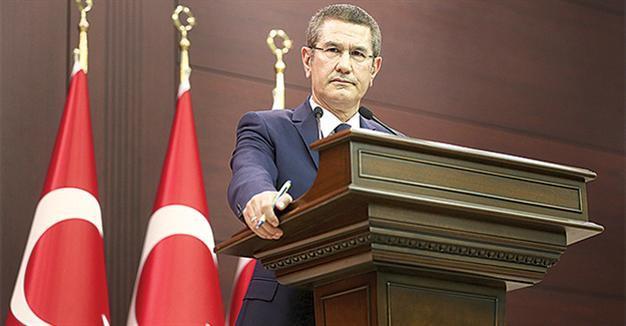Turkish gov’t set to improve investment climate, ease employment conditions for foreigners
ANKARA

AA photo
Turkey’s cabinet is finalizing a comprehensive package to improve the investment climate, promising a series of regulations that will eliminate several obstacles which are faced by foreign direct investors and ease employment conditions for foreigners, Deputy Prime Minister Nurettin Canikli said June 13.
“A comprehensive package was presented to the cabinet to improve the investment climate … We are preparing to launch a quite detailed regulation which will also resolve the problems before the foreign direct investment inflow,” he said.
Canikli said the package included significant changes to the tax system.
“There will be regulations that will decrease the stamp tax and other costs for the investors. In the contracts, the stamp tax and the notary fee will be charged only one copy. This is of great importance for potential investors as we will be ceasing to execute a 52-year-long practice which raises costs for investors,” he said, adding that the stamp taxes would also be refunded in the event of the cancelation of public tenders.
‘Turquoise Card’ for foreign employees
Canikli said a series of regulations would be introduced to improve the employment conditions of foreigners.
“We will unveil a Turquoise Card, which will provide qualified foreigners with the opportunity for permanent employment. Short-term foreign workers and interns will also get a permit to work,” he said.
After the draft passes the parliament, only the Labor Ministry will be responsible for dealing with work permits for foreigners rather than a couple of ministries, he said, adding that the draft would also help Syrian refugees acquire work permits in Turkey.
“Through this draft, it will also become possible for us to cancel the work permits of people who put public health and safety at risk, as well as the people who are forbidden to enter the country,” added Canikli.
Canikli also said there was around 280,000 tons of ammonium nitrate fertilizer on the market at present and that the government had temporarily banned sales of this kind of fertilizer after car bomb attacks hit Istanbul, as well as Midyat in the southeastern province of Mardin, on two consecutive days last week.
“We are working on a plan to follow and monitor the fertilizers with nitrate until February 2017. We will allow the use of these fertilizers after this date in a controlled manner,” he added.
The sale and distribution of 12-kilogram propane cylinders will be monitored and inspected accordingly, the cabinet announced last week.
